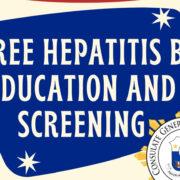Unless otherwise disciplined, children in general would be glued on television hours on end. This is a part of their natural curiosity and playful instinct. If allowed, they would lose their interest in all other things, including eating and school work. The negative impact of undisciplined and unsupervised television viewing by children has been an issue for decades, since the introduction of the “tele-tube.”
Recent Canadian research by the Quebec Longitudinal Study of Child Development, a prospective cohort of 1,006 boys and 991 girls, aged 29 months (2 years and 5 month old), showed a seriously alarming results based on parent-reported data on weekly hours of television viewing at that age group.
The investigators used a series of ordinary least-squares regressions in which children’s scores on direct child assessments of vocabulary, mathematical knowledge, and motor skills, as well as kindergarten teacher reports of socio-emotional functioning, were linearly regressed on early televiewing, according to the article published in Pediatric Research, 2013.
This study shows that “increases in total time watching television at 29 months were associated with subsequent decreases in vocabulary and math skills, classroom engagement (which is largely determined by attention skills) victimization by classmates, and physical prowess at kindergarten. The negative impact is proportionally increased every added hour of televiewing.
What happens to these toddlers at this stage their future determines (could compromise) their school performance, overall psycho-social-emotional development, lifestyle and habits, and eventual productivity as teenagers and adults.
These findings could also be extrapolated for older children, where concentration, interest in their schooling, and priorities, are impacted, especially those who are also into computer video (Nintendo, etc) war games.
The American Academy of Pediatrics recommends that children under age 2 not watch television at all, while those older should watch no more than one hour to two a day of quality shows. For them, educational and entertaining programs (news, sports, game competition, including Jeopardy, and similar shows, are the best.
The power to guide our children is in our hands. Let us protect them even from themselves. (For other valuable tips and pointers, visit philipSchua.com).
***
Can we control our dreams? Scientists believe so. By focusing on what we wish to dream about before we sleep, we may be able to “direct and shape” our dreams. This will take some practice, though. Those who sleep well are in a better position to control their dreams. We need about 8-9 hours of restful sleep a night. Dreams happen during the REM (Rapid Eye Movement) stages of sleep. Like most mammals and some birds, rats also have REM sleep and dream like us humans.
***
Tattoos are becoming popular, especially among the younger set. More than 30% of Americans between 18 and 25 have tattoos, reports the Pew Research Center. With this fad, there is also increase in allergic reactions and infections, which could include Hepatitis, syphilis, and HIV. Skin cancer is another concern, especially when the tattoo is on top of a mole. It is important for consumers to know the potential risks and complication of tattoos.
***
A study of half a million Americans who ate a healthy diet revealed a significant decrease in their risk for developing the deadly pancreatic cancer by 15 percent. The subjects limited their intake of saturated fats and cholesterol (red meat, egg yolk and other dairy products), transfat, sugars, salt and alcohol. There is no question that a healthy lifestyle, which includes daily exercise, abstinence from tobacco, diet of fish, vegetables, nuts, fibers and whole grains, can ward off a host of illnesses.
***
More on pancreatic cancer: Clinical research at the Mayo Clinic College of Medicine in Rochester, Minn, found that the versatile and wonderful aspirin, which is used for aches and pains and to prevent heart disease, also reduces the risk for the development of pancreatic cancer. This study discovered that people taking aspirin at least once a month were 29 percent less likely to have cancer of the pancreas compared to those who took other drug for pains. Those who took daily low-dose (81 mg) aspirin gets a 35 percent lower risk for acquire this malignancy. In other reports, aspirin were show to lower the risk for other forms of cancers also. What a drug!
***
The over-the-counter drug, acetaminophen (Paracetamol, Tylenol), which is found in many common drugs for pain, may cause a rare complication called Stevens-Johnson Syndrome, a condition that cause massive toxic epidermal necrolysis (skin disintegration – “melting away”), with acute generalized pus formation on the skin all over the body. This could lead to other organ complications and even death. Anyone who experiences skin rash or blister after taking acetaminophen, should stop taking the drug and seek medical consultation without delay. A similar condition (called Reye’s Syndrome) could happen among some children after taking aspirin. This is why aspirin is no longer used for kids.
***
Do you have a lot of brothers and sisters? If you do, then your chances as a married person of getting a divorce is a lot lower than those who do not have any siblings. This new study found that for every sibling that a married individual has, there is a 2 percent reduction in your likelihood of getting a divorce. If you have 4 siblings, then you have an 8 percent advantage. No wonder Asians have very low divorce rate. This Ohio State University study was conducted on 57,000 married persons in the USA from 1972 to 2012.
***
Alcohol and medications could lead to severe interaction that could cause heart problem, internal bleeding, liver damage, impaired breathing and depression. Mixing these two could also reduce the effectiveness of medications, or impair the senses. Some of these drugs, which should not be “mixed” with alcohol are: medications for allergy, colds, flu, arthritis, diabetes, high blood pressure, angina/heart disease, blood clots, cough, depression, seizures, high cholesterol, infections, muscle pain, sleep problem, epilepsy, etc. Intake of either should be at an interval of no less than 6 hours, and with no more than two drinks.
***
Most of the food supplements, herbal and otherwise, on the market today are actually not necessary and useless as far as a healthy person is concerned. Moreover, on top of being expensive, they do not add to health and could even cause complications like organ (kidney, liver, etc) failure in the long run. If a person is sick with deficiency of any substance, a prescription for the specific nutriment(s) from a physician is the way to go. For high blood pressure, diabetes, etc… prescription drugs (not herbal) are the wisest alternative. For normal situation, it is safer and cheaper for persons to live a healthy lifestyle with proper diet and exercise, and one regular multi-vitamin-mineral pill, like Centrum, vitamin D3, and (a low-dose aspirin, if prescribed by your physician) daily.
As we grow older, we realize that the adage “Health is Wealth” is not a cliché. Our health is indeed priceless. Not even the wealthiest with billions and millions can buy health back from an end-stage cancer, etc. As I have pointed out in my health book on the website, philipSchua.com, most diseases, including cancer, are preventable.
***
Philip S. Chua, MD, FACS, FPCS, Cardiac Surgeon Emeritus in Northwest Indiana and chairman of cardiac surgery from 1997 to 2010 at Cebu Doctors University Hospital, where he holds the title of Physician Emeritus in Surgery, is based in Las Vegas, Nevada. He is a Fellow of the American College of Surgeons, the Philippine College of Surgeons, and the Denton A. Cooley Cardiovascular Surgical Society. He is the chairman of the Filipino United Network – USA, a 501(c)(3) humanitarian foundation in the United States. Email: [email protected]




